Settle Our Status
Settle Our Status
Settle Our Status
We all want to live in a just society where we care for our neighbours, and where people are able to flourish and live in dignity. Yet, over 2 million people in the UK are prevented from contributing to their communities simply due to their immigration status.
We are calling for 'settled status’ for all who have made the UK their home.
“Undocumented people are constantly in lockdown”, says Elsie, Campaign Co-chair and Leader from Parents and Communities Together (PACT) in Southwark Citizens. Without the right documents, people cannot work and cannot access basic services including most of the NHS. They also effectively cannot access the criminal justice system, which harms women at risk of domestic violence and people at risk of exploitation and modern slavery. Many of us and our neighbours are unable to support our communities, participate in public life or contribute to the economy. It means that people without documents cannot pay taxes, go to university or flourish. People may not even be able to travel to visit a sick or dying loved one. Some end up at risk of homelessness, many feel helpless and hopeless.
But we are not. Everyday people working together have the ability to shift the balance of power and win change - that's why Citizens UK is calling for an earned regularisation for people without documents so that they can gain Settled Status.
People living without status are leading our movement in their communities, together with organisations like faith groups, universities and businesses. Together, we can build a more welcoming society for all.
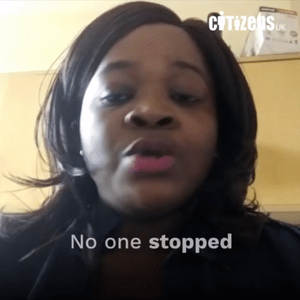
Documented or undocumented, we are all equal we are all human beings. What makes you a person with settled status different from me a person without settled status? Just opportunity and luck. We say in the Settle Our Status campaign: together we can. If we come together as one, we can always do great things. We are all one. We are human beings. Treat us fairly.
Elsie Mumah, Organiser
New research by Citizens UK reveals the Government could alleviate labour shortages by regularising the immigration status of people already living in the UK so they can access work.
The Impact of Regularisation report finds regularisation would bring additional tax revenues of an estimated £2,015 per person. This research is one of the first in the UK to assess the economic implications of settling immigration status’ by using a sample of people already living here.
As an owner of a logistics company we are experiencing an industry shortage of around 50,000 van and hgv drivers. To keep our business going we have had to put our wages well above the industry standard and increase our prices. Meaning our customers face higher costs and everything goes up for the end users. It becomes a vicious circle, and the economy spirals out of control. The solution is simple - get more people to fill the industry gaps. We currently can’t do it with the amount of people in this country. There is plenty of work and opportunities and we need help.
David Duff – DHD Refrigerated Transport, speaking in support of the Settle our Status campaign
How do people become undocumented?
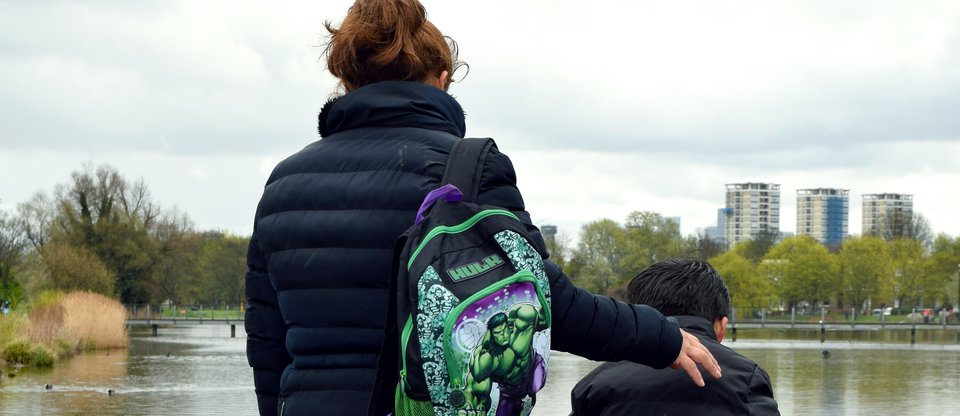
There are no official figures for the number of people in the UK without documents. However, estimates can be in the millions. People become undocumented for a variety of reasons including entering the UK on a visa (e.g student or spouse) but then having renewal applications refused. Some people arrive in the UK as a child to parents without settled status, are refused asylum, or are unable to pay large Home Office fees.
Our current system makes it difficult for migrants to maintain their immigration status. If people cannot afford visa renewal fees, cannot find the right kind of employment, or experience relationship breakup on certain visas, they risk becoming undocumented.
There are currently several routes to settlement, resulting in leave to remain status in the UK, however, they are very complicated. If you make a mistake or receive bad advice, the system punishes you, potentially putting your life on hold, and can leave you vulnerable to violence, exploitation or homelessness.
- Lived continuously in the UK for at least 20 years
- Aged between 18 and 25 years and have spent at least half of their life living here
- Has lived continuously in the UK for less than 20 years but there would be very significant obstacles to their integration into the country of return
- Aged under 18 years, has lived continuously in the UK for seven years, and it would not be reasonable for them to leave
- Families where there is a qualifying partner or child (British or who has lived continuously in the UK for at least seven years) and it is unreasonable to expect family life to continue outside the UK or for the child to leave
Testimonies
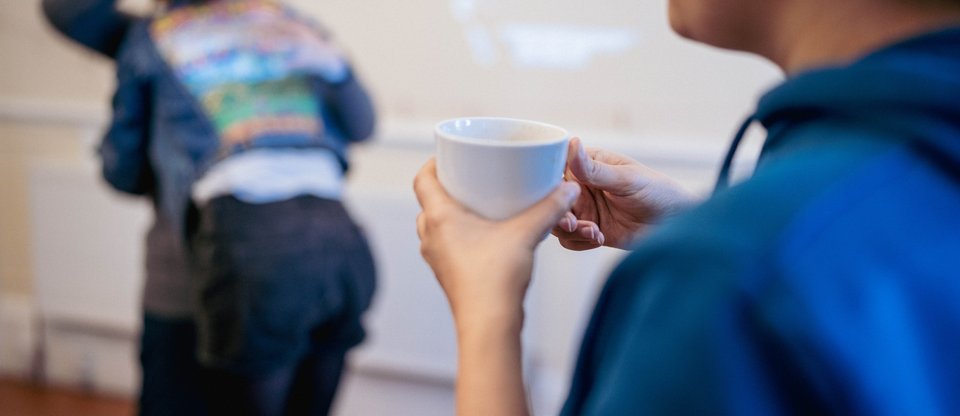
"Living without status, everything is difficult."
Sue's story"Living without status is like barely surviving."
Pam's story"Winning means having our lives back."
Hannah's storyWinning would give me freedom I've been dreaming of for so many years."
Alex's story
As a victim of domestic violence, my ask is about safe reporting — as an undocumented person, if you are the victim you are turned into a criminal because you don’t have the papers. You don’t have a voice. You can’t go to the police. You can’t shout for fear of being arrested, for fear of being returned back home — you have to bear the violence.
Bilqis, St Mary’s CE Primary School Lewisham
Change is feasible
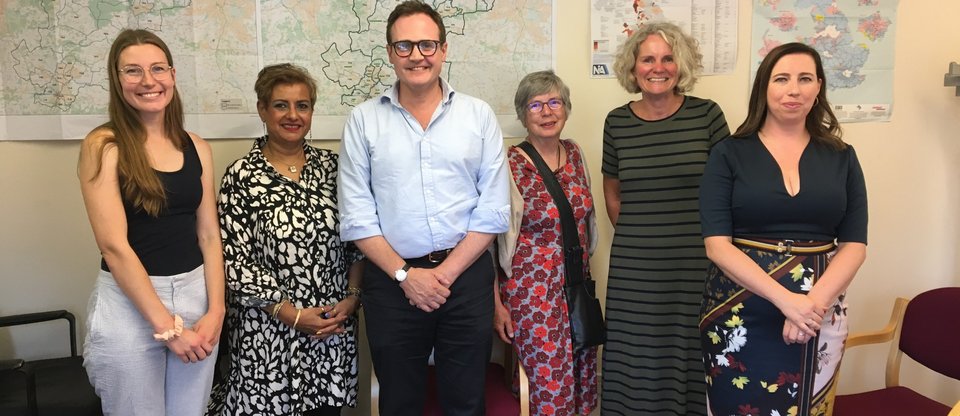
The EU Settled Status Scheme has proven that a mass regularisation process is possible and affordable. In 2022, the Irish government also introduced a 6 month regularisation scheme that changed the lives of thousands of people by granting them status.
We are asking for the Government to regularise and settle the status of people who have made the UK their home, for all who have put down roots.
Creating an earned regularisation process would provide documents for people without immigration status so that they can fully participate in their communities, and allow them to be better able to provide for themselves and their families. It would also benefit the common good and contribute to economic growth.
A brief history of the campaign
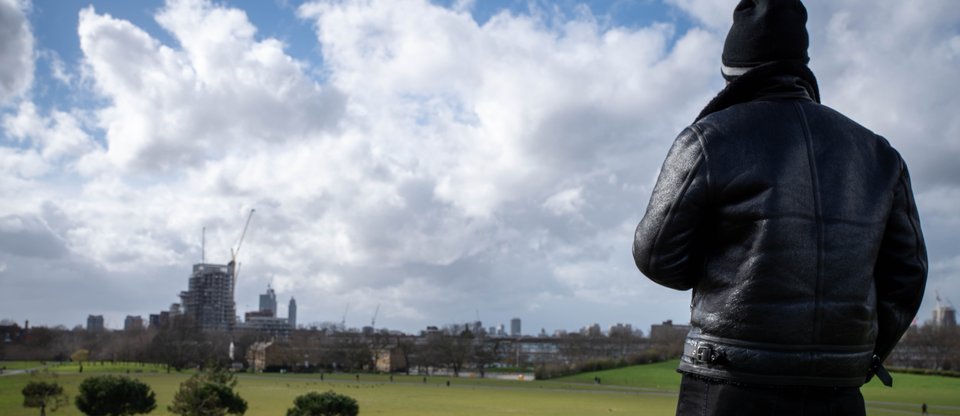
At the beginning of the Covid-19 crisis, there was uncertainty about how much it would affect our neighbours. So we held a national listening campaign in March 2020, when the first UK’s national lockdown started. One of the issues that kept coming up was around immigration status with people worried about having no income or access to a safety net, with no way to support themselves and their families.
We set up a national campaigning team through Zoom meetings. Over 30 everyday people from around the country joined our action team and nearly 10,000 people signed our open letter to the Prime Minister.
Today we have action teams up and down the country putting power back into the hands of communities by meeting with MPs, partnering with businesses, and spreading awareness about life without status.
Our belief is that together, we can settle the status of all our neighbours.
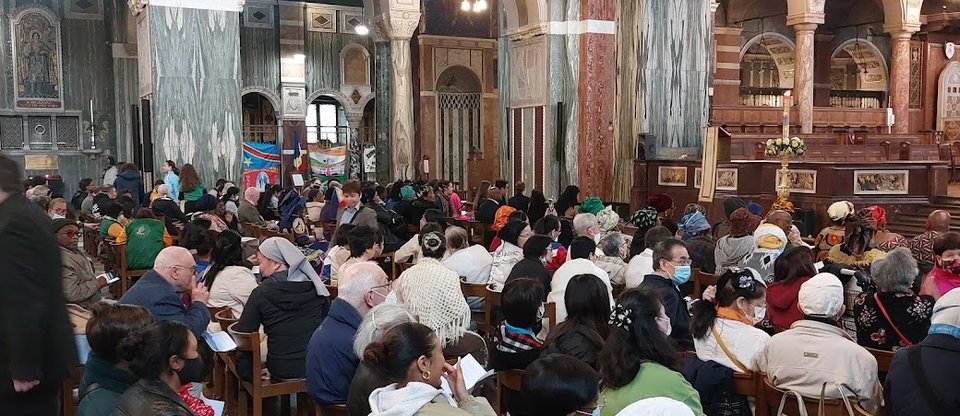
Read our collection of stories from people in our communities about the hardships of living without documents in the UK, and what it would mean to win change via an earned regularisation.





